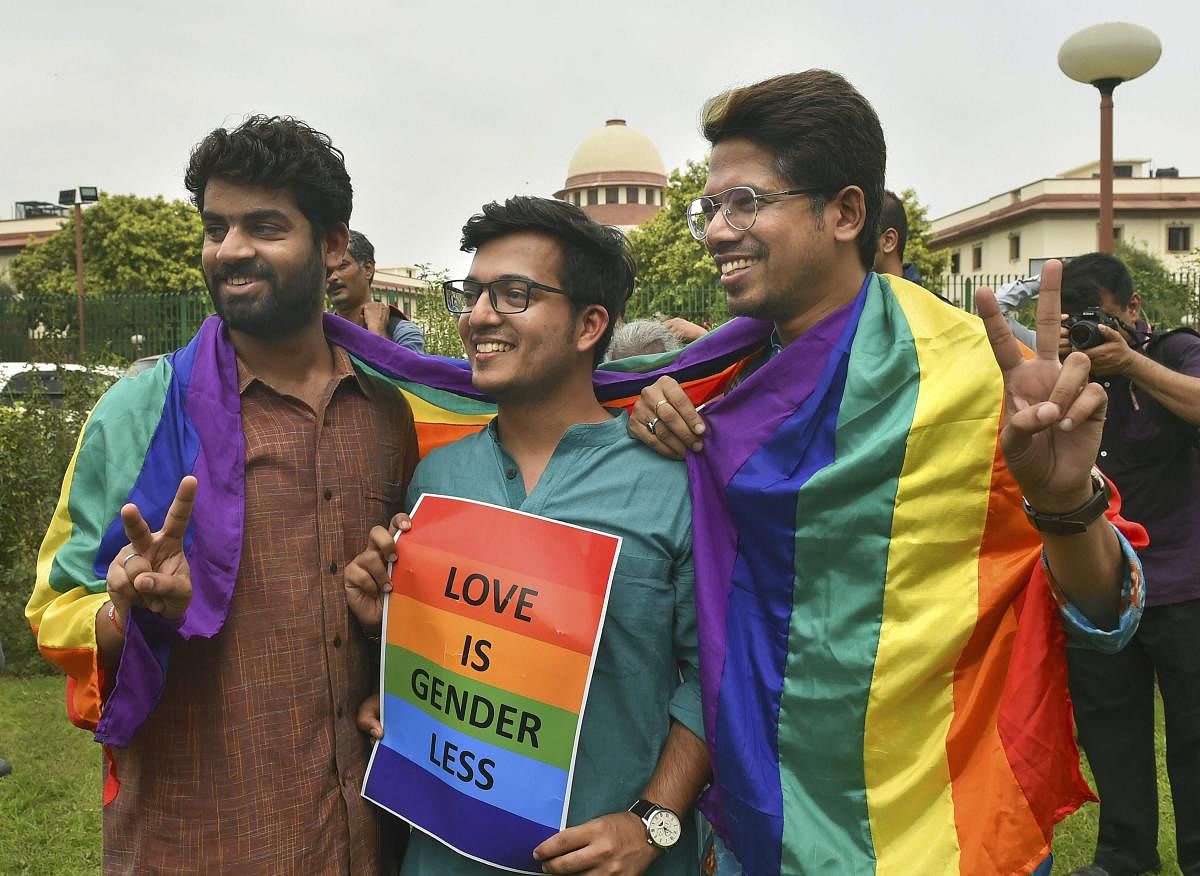
The first indication over the Supreme Court reversing its own judgement, which re-criminalised gay sex, came a year ago when the country's top judges examined the issue of the right to privacy and said their earlier order on Section 377 was "unsustainable".
While on Thursday the apex court decriminalised gay sex, it had on August 24, 2017, held that the rights of the lesbian, gay, bisexual and transgender (LGBT) population cannot be construed to be "so-called rights" and that the earlier bench's coinage was "inappropriate".
The nine-member bench was then hearing the issue of the right to privacy. Justice D Y Chandrachud, who also heard the latest petition on Section 377, wrote in his judgement then, "Sexual orientation is an essential attribute of privacy. Discrimination against an individual on the basis of sexual orientation is deeply offensive to the dignity and self-worth of the individual.”
He had said equality demanded that sexual orientation of each individual must be protected on an even platform and that the right to privacy and the protection of sexual orientation lie at the core of the fundamental rights guaranteed by Articles 14, 15 and 21 of the Constitution.
In a separate but concurring judgement, Justice Sanjay Kaul then wrote: "Ones sexual orientation is undoubtedly an attribute of privacy." However, the Constitution bench had then refused to go further on the issue as the challenge to Section 377 of the Indian Penal Code is pending before another bench.
The legal fight to decriminalise Section 377 began in 2001 when Naz Foundation approached Delhi High Court, which dismissed the case as well as review petition in September and November 2004, respectively.
The case became alive in 2006 when the Supreme Court asked the high court to hear the case again on an appeal filed by Naz Foundation and on July 2, 2009, the latter declared Section 377 violative of Articles 14, 15 and 21 of the Constitution, “insofar as it criminalises consensual sexual acts of adults in private”.
However, there was a twist in December 2013 when the Supreme Court overturned the Delhi High Court judgement to re-criminalise gay sex. The apex court dismissed the review petition and a curative petition followed.
During the hearing, another petition was filed in the Supreme Court against the judgement re-criminalising gay sex. Later, it was decided to hear this petition in which the Supreme Court has decriminalised gay sex.
